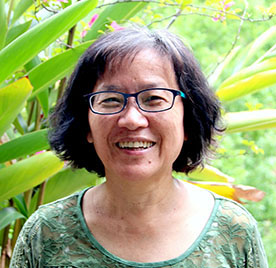A national Child Development Account (CDA) policy is emerging in Taiwan.
President Tsai Ing-wen in June signed into law the Act on Savings Accounts for the Education and Development of Children and Teenagers. The legislation encourages disadvantaged families to save for their children’s future by creating publicly subsidized saving accounts.
The scholar Li-Chen Cheng, who earned her PhD at the Brown School, has spent decades testing Child Development Accounts and anti-poverty measures in Taiwan and advising government officials. She is now discussing with national policy officials how to increase enrollment for the accounts under the new act.
A professor at National Taiwan University, she received a Brown School Distinguished Alumni Award in 2015. She works closely with the Center for Social Development on developing CDA policy in Asia.
“The most exciting thing for a policy scholar is to see something you work on for such a long time finally realized or practiced,” Cheng said. “It does not mean your work is done. In metaphor, it means a baby is just born, and raising it up just begins.”
 Li-Chen Cheng, PhD
Li-Chen Cheng, PhD
The idea of matched savings has been included into Taiwan’s Social Assistance Act since 1994, Cheng said. It requires each local government to launch some sort of anti-poverty program to help the poor families accumulate savings. But the programs had been sporadic and small, she said. Then, in 2000, the Taipei City Government set up savings accounts for poor families. The idea of matched savings has been included into the Social Assistance Act since 1994. Luckily, President Tsai included the policy idea in her most recent election platform, Cheng said.
